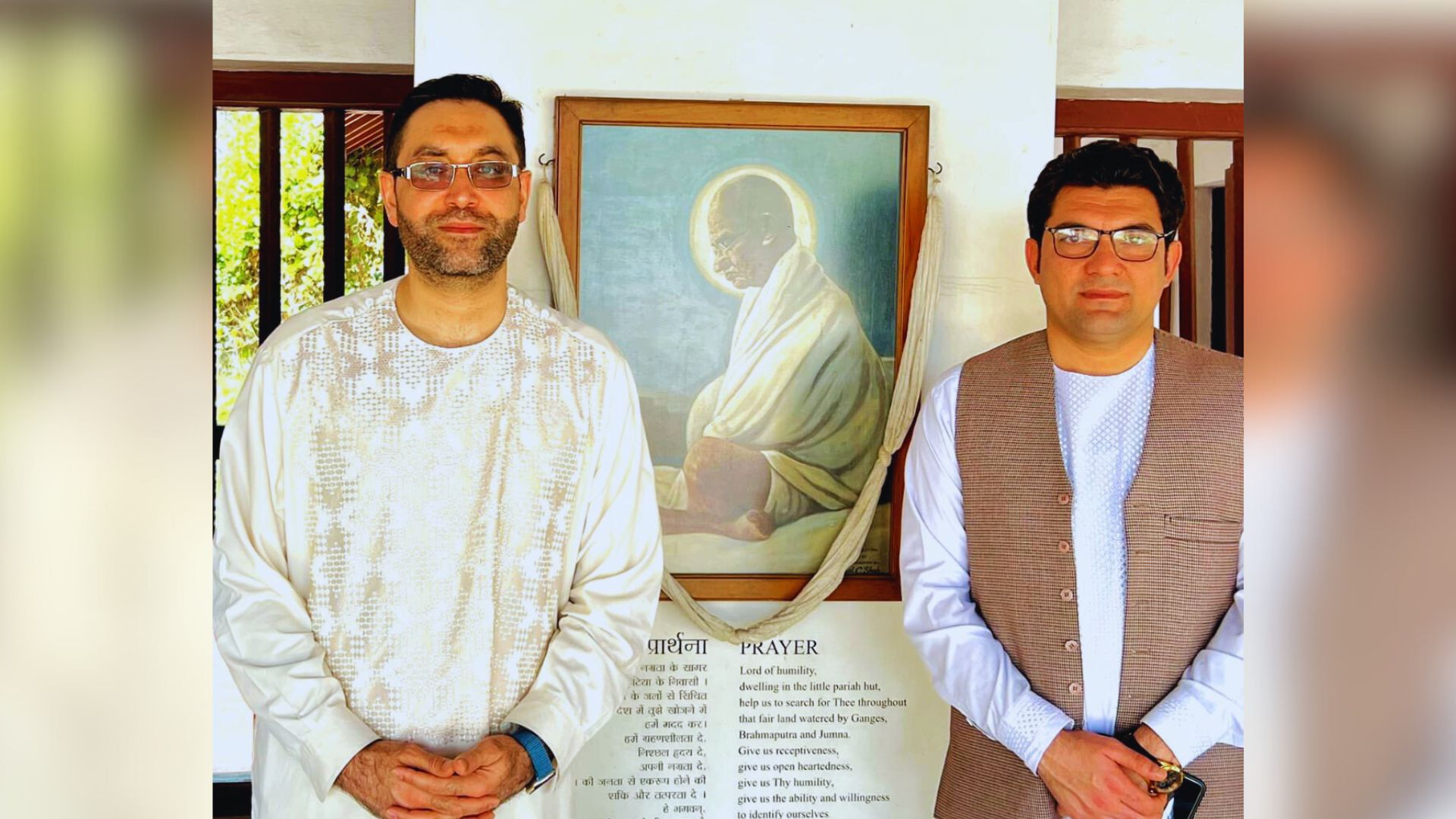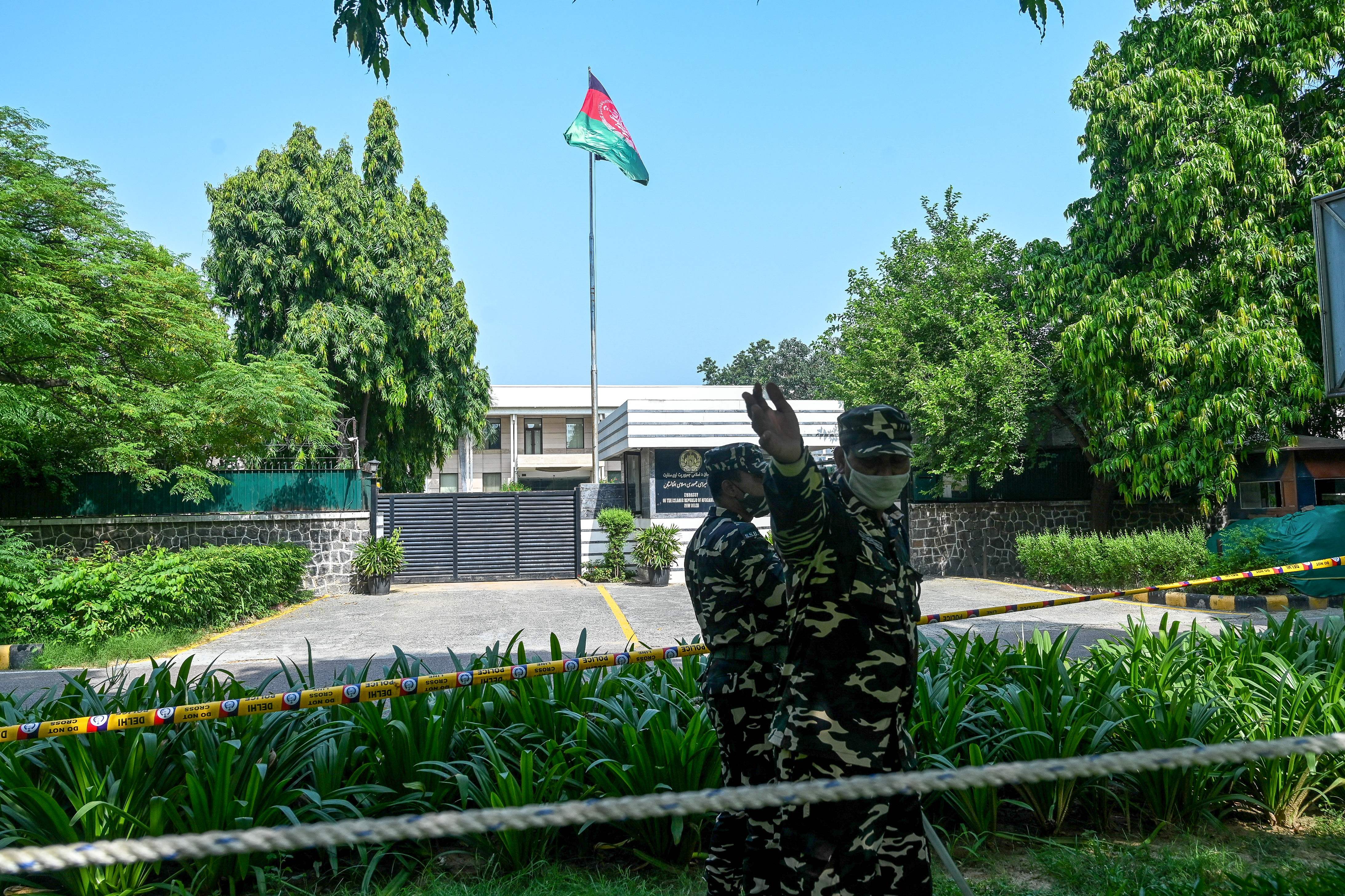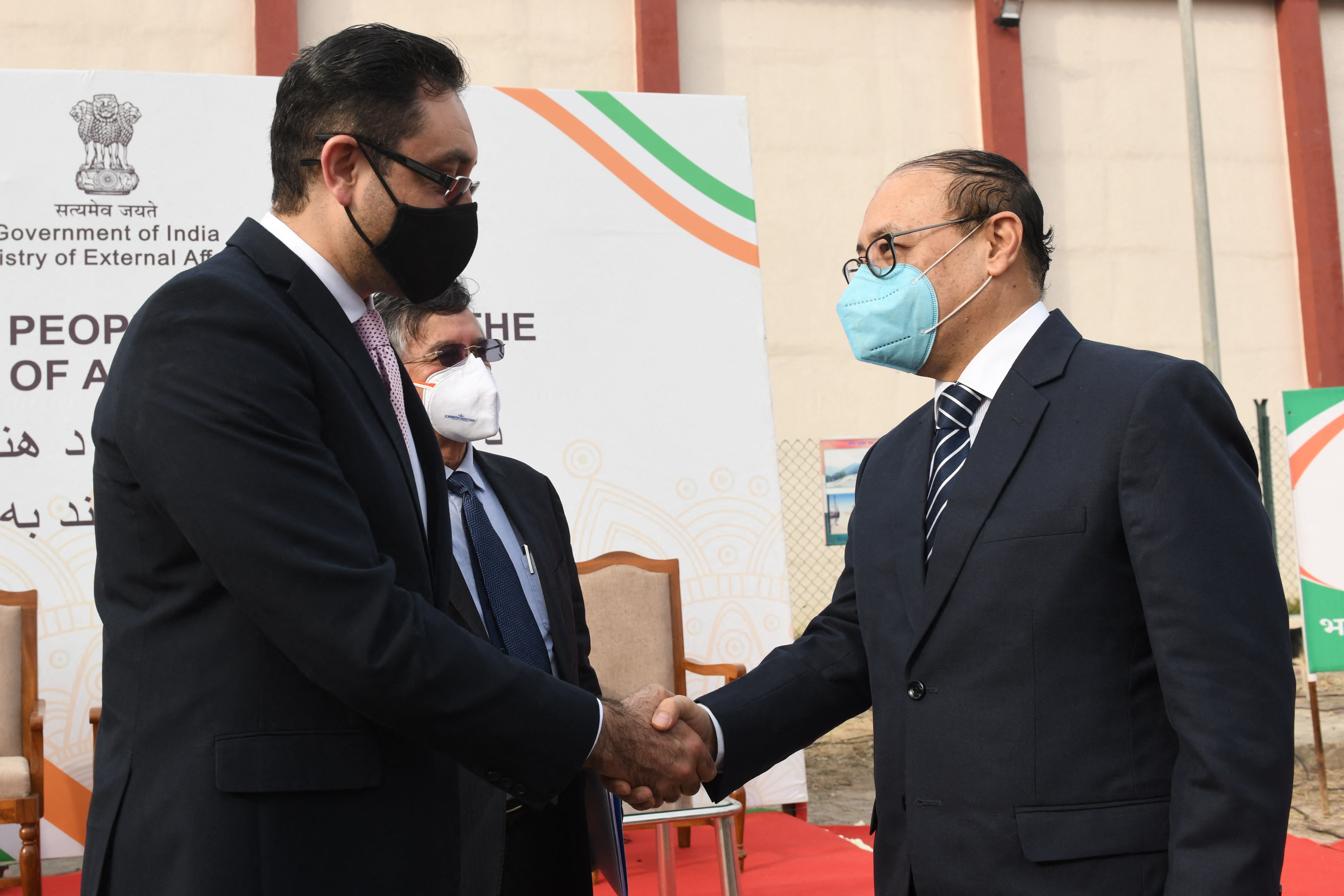How the Taliban’s fight for global recognition is playing out in a power struggle over the Delhi embassy
Afghanistan’s current ambassador and his former second-in-command are vying for control of the country’s embassy in Delhi, and the result could have big ramifications for the Taliban’s global recognition. They both sit down – separately – with Arpan Rai, to explain how things got to this point


No nation in the world has formally recognised the Taliban’s rule of Afghanistan since the Islamist group stormed Kabul and seized control of the country by force in August 2021.
At the centre of the group’s efforts to force global recognition have been hostile takeovers of Afghan embassies around the world, each time with the quiet complicity of the host nation. This pattern has played out in China, Russia, Iran, Pakistan, and a number of central Asian states – and the Taliban had hoped that key regional power India would be next.
The current Afghan ambassador in New Delhi was appointed in 2020 by the Western-backed Ashraf Ghani administration. Like other Ghani appointees still occupying diplomatic compounds around the world, Farid Mamundzay has been cut off from essential lines of funding from Kabul, but insisted he would continue to represent the true democratic spirit of the Afghan people – and await the Taliban’s downfall.
Yet there is another man in Delhi with ambitions on Mamundzay’s seat. Qadir Shah is a former colleague of the ambassador, both in Kabul’s presidential palace and as head of trade at the India mission. He is no longer welcome at the embassy, however, having been named as the Taliban’s preferred appointee by the group’s Doha grandee Suhail Shaheen.
The power struggle at the heart of Delhi’s grand and leafy Chanakyapuri embassy district could have major ramifications for the way the Taliban is perceived on the global stage, never mind for India-Afghanistan relations, and has been followed with interest by the Indian media.
Now both Mamundzay and Shah have sat down for separate interviews with The Independent to tell their sides of the story, and explain how the relationship between two close colleagues descended into bitter allegations of conspiracies, mudslinging, and palace coups.
Reminiscing about his “friendship” with Mamundzay that has now gone sour, Shah says: “We’ve worked together at the presidential palace [in Kabul] since 2014 and known each other for a decade.”
Yet Shah’s texts to the ambassador have gone unanswered since April. “I am no longer hearing from him or other members of the embassy; I have been nearly blacklisted and returned from the embassy gates multiple times now.
“Talking about this feud [with Mamundzay] feels like I am talking against myself, because he is such a good friend,” Shah laments.
Officials at the Afghanistan embassy have accused Shah of planning and attempting to execute a “palace coup” while Mamundzay was away in London in April, hoping to take on the role of charge d’affaires that he was named to by the Taliban-run foreign ministry in Kabul that month.
Shah rejects the idea that he is the Taliban’s man, arguing that the leaders in Kabul only floated his name because he was the existing second-in-command in Delhi, and that the Islamist group’s foreign affairs minister, Amir Khan Muttaqi – sanctioned by the UN Security Council and the UK for his role as Taliban education minister in the previous 2001 regime – were not impressed by Mamundzay’s work.
Mamundzay says he refused to vacate his office and hand over charge of the embassy to Shah “at the behest of the Taliban”, insisting he hold the fort for the ousted democratic administration and play no part in legitimising the Taliban on the world stage.

The embassy in New Delhi continues to raise the Afghan national flag of black, red and green that the Taliban has replaced in Kabul with its own standard. It is displayed both on a huge flagpole at the entrance and throughout the offices and corridors of the embassy. There it appears alongside cheerful photos of Ghani, who is now in exile in the UAE having fled the Taliban advance in the summer of 2021.
The corridors of the embassy, however, are eerily quiet – deserted by all but a skeleton staff as the embassy has no legitimate administration to finance it. “A stateless mission becomes valueless,” notes Mamundzay. According to reports, the mission previously had 23 diplomats, but only around 10 remain, the others having fled to third countries such as Canada to seek refugee status.
Mamundzay is much less effusive about what Shah calls their past friendship, noting flatly that the two officials shared a professional relationship in the course of their career in consular service.
He says there is no chance of his stepping aside to allow Shah to take his role, and that the Taliban’s “charge d’affaires” pick has been “spreading misinformation and running a baseless and unsubstantiated campaign against officials of the mission”. That’s a reference to an open letter published by Afghanistan’s Tolo News last month, claiming to be from a “representative of Afghans based in India” and accusing the ambassador and other embassy officials of corruption over a lease agreement. Mamundzay issued a public statement at the time rejecting the “totally fabricated allegations of corruption based on an unsigned letter”.
Officials at the embassy say that Shah deliberately built a relationship with the Taliban over the past 12 months and leaked critical information to the Islamist group, including prominent Indian leaders’ views on Afghanistan, and mission details relating to which official at the embassy is doing what, and which official is visiting New Delhi.
“Shah tried to buy the loyalty of the Taliban in recent months, but has failed in helping them position themselves in New Delhi in this gaffe attempt,” a source at the embassy told The Independent.
Shah has rejected the charges, stating that he was in touch with the Taliban only to carry out his work on trade relations between India and Afghanistan, which have remained stable despite the fall of Kabul and are valued at nearly $500m (£400m) a year for India.
Both sides in the row have separately appealed to India’s Ministry of External Affairs for support – the Taliban’s “appointment” of Shah was intimated to the Indian government directly by Shaheen, rather than via the ambassador Mamundzay, in what embassy officials described as a departure from diplomatic norms.
On one of the several occasions when Shah tried to enter the embassy and was refused access, officials there reached out to the Indian authorities for help in keeping him away.
But India has until now declined to take sides, and in an official statement called it an “internal matter” for Afghanistan – and the two diplomats in question – to resolve.
Mamundzay called on India to take a stand on the issue, and in doing so send a message that it stands up for democratic ideals. “I hope the entire region, particularly India, will act in the spirit of enlightened self-interest on issues related to Afghanistan,” he said.
“Afghans will judge the policies of their friends based on the choices they make, and would certainly remember those who stood by them in difficult times,” he adds.

Mamundzay adds: “As we witness gender apartheid in Afghanistan, together with the worst humanitarian crisis in the world due to poor governance, any recognition of the Taliban would send a shocking message to Afghan women and girls that the world has forgotten them.”
Experts say that, while there’s no prospect in the short term of India officially recognising the Taliban government in Kabul, its failure to support Mamundzay indicates a tacit acceptance that the Islamist group is here to stay, and that the Narendra Modi administration will sooner or later need to establish better lines of communication with the Taliban or risk falling behind the likes of China, which has surged ahead of other countries in reopening its investments in Afghanistan.
“There is nothing covert about India’s policy shift in ties with the Taliban, or having their representative in Delhi any more. It is happening. Ashraf Ghani is history for India, and New Delhi no longer wants to make a distinction,” says Pravin Sawhney, a military expert and the editor of Force, a monthly magazine covering India’s national security.
Despite not being invited by China, Pakistan and Russia to take part in formal talks with the Taliban, India is watching, and now understands that if it wants a foothold in Afghanistan, it should be prepared to host the country’s representative, he suggests.
“When India says it is an internal matter, it wants to make sure some sort of Afghanistan representation remains in Delhi, which will help our positioning on whatever shape it takes in Kabul,” he says, calling it a subtle way of wanting to stay in touch.
India will become increasingly flexible in regard to the Taliban, because over time that will be the only option on the table, the former Indian army official says.
Does this mean that India could at some point formalise the arrangement of having the Taliban’s man as the Afghan ambassador to New Delhi? “India will perhaps not allow the next guy to present his credentials to the president, avoid it from being formalised, and perhaps watch the existing ambassador leave quietly,” Sawhney tells The Independent.
Ultimately, India probably won’t need to make any bold statements – it simply has to wait it out until the Ghani administration envoys reach the end of their tenures, their patience, or their financial viability – whichever comes first. Mamundzay’s term as ambassador only runs until February 2024, though it isn’t at all clear that he would then leave by choice.
For now, Shah bides his time in Delhi – he has little else to do, having been fired by Mamundzay from his role as head of trade at the mission. But he claims he still hasn’t entirely given up on the idea of coming to an amicable arrangement that puts all this behind the two men. “I am still hopeful that the friendship between us remains the same,” he says.








Join our commenting forum
Join thought-provoking conversations, follow other Independent readers and see their replies
Comments